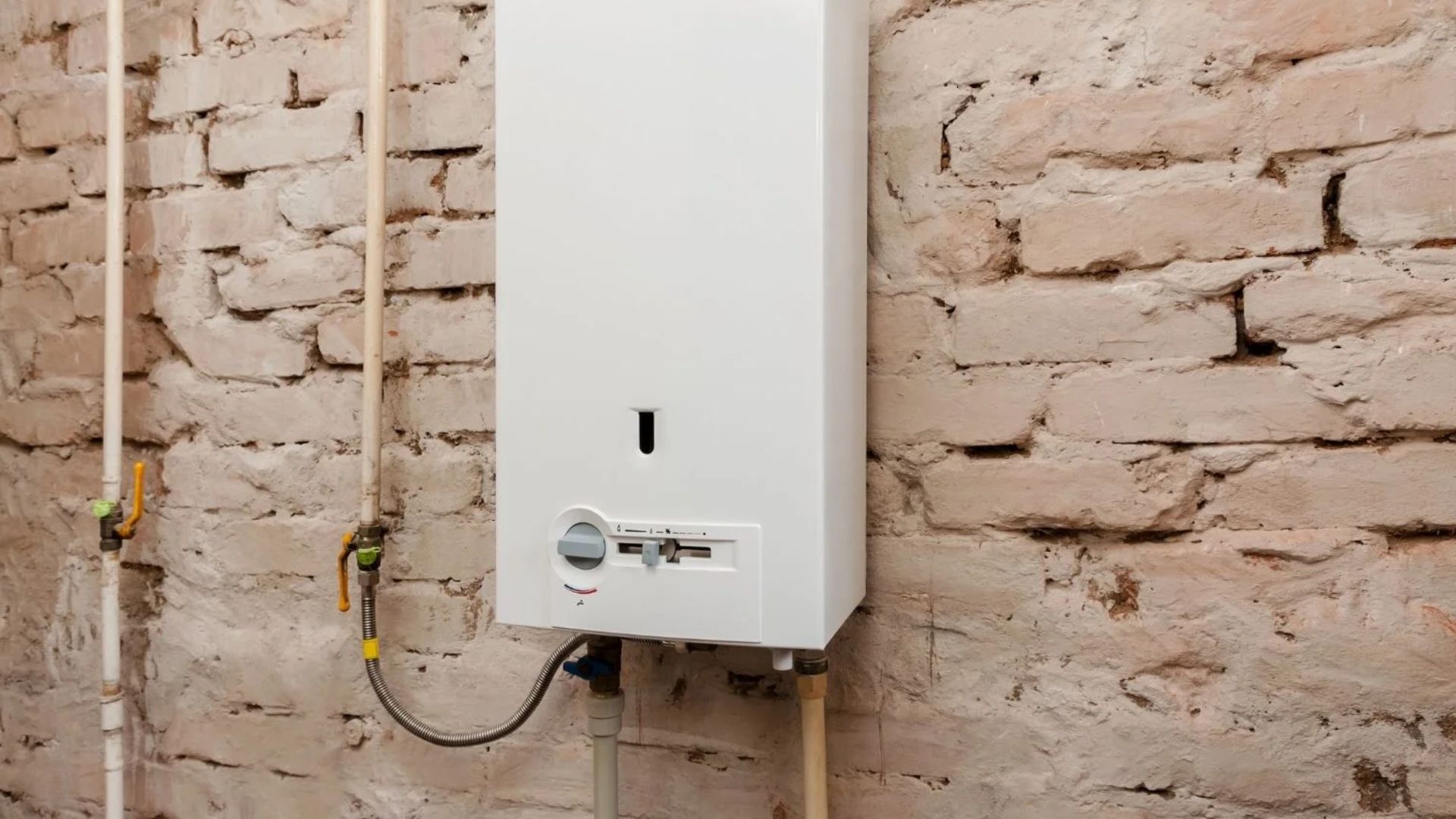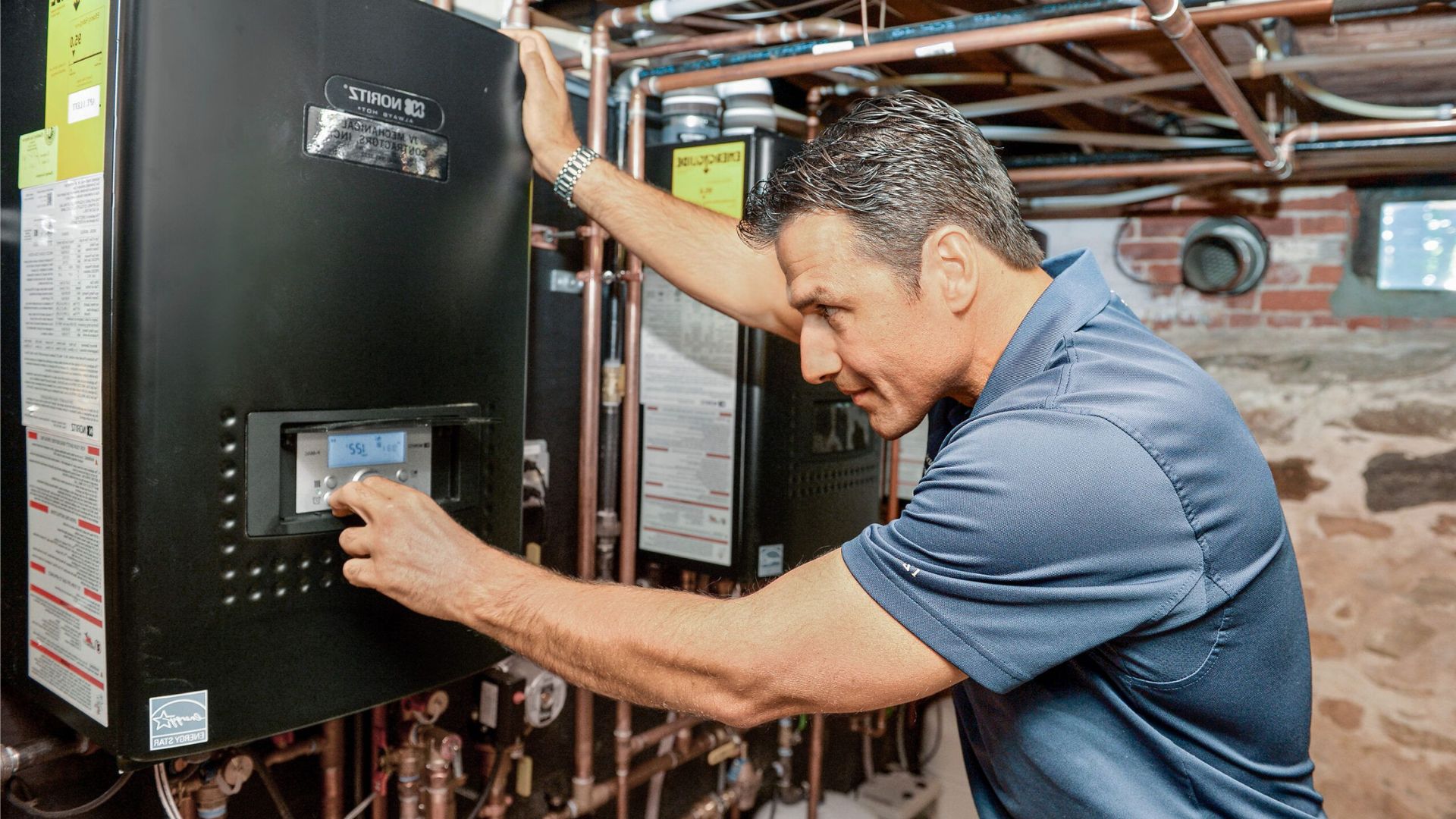7:00AM to 5:00PM
Tankless hot water systems, also known as on-demand water heaters, have gained significant popularity in recent years due to their energy efficiency and ability to provide a continuous hot water supply. Unlike traditional storage tank water heaters, tankless water heaters operate by heating water on demand, eliminating the need for a storage tank. This comprehensive blog will explore how tankless hot water systems work, discuss their advantages over traditional water heaters, and address frequently asked questions to help you understand this innovative technology.
Tankless water heaters deliver hot water efficiently and instantly. With their innovative design, these systems eliminate the need for a storage tank, allowing them to produce hot water on demand. When a hot water tap is turned on, the tankless heater activates, swiftly heating the water as it flows through the unit. This instant hot water feature provides unparalleled convenience, ensuring you have hot water whenever needed, without any waiting time.
Whether taking a relaxing shower, washing dishes, or performing any other hot water-related task, a tankless water heater guarantees a seamless and efficient hot water supply, making it an ideal choice for those seeking an instant hot water system.
Tankless water heaters, also known as on-demand water heaters, operate on a simple yet efficient principle. When a hot water tap is opened, cold water enters the tankless water heater unit. The unit’s flow sensor detects the water flow and initiates the heating process.
The instantaneous hot water supply is a crucial feature of tankless water heaters. As the water passes through the tankless heater, it is heated on the spot, and the hot water is delivered directly to the desired tap or fixture in your home. This continuous flow of hot water ensures that you never run out, even during periods of high demand.

Electric tankless water heaters are equipped with electrical resistance heating coils. As cold water flows through the unit, these heating coils, powered by electricity, rapidly heat the water to the desired temperature. Electric tankless water heaters are famous for their ease of installation and versatility, as they can be installed in various locations, including under sinks or in utility rooms.
On the other hand, gas tankless water heaters utilise a gas burner that ignites to heat a heat exchanger. The heat exchanger, in turn, warms the water flowing through it. This design is particularly suitable for homes with a natural gas supply. Gas tankless water heaters are known for their high heating capacity and ability to deliver hot water at a higher flow rate, making them ideal for larger households or commercial applications.
When choosing a tankless water heater, it’s crucial to consider the type of energy source available in your home and your specific hot water requirements. The two main options are electric and gas tankless water heaters. Understanding the pros and cons of each type will help you determine which one best fits your needs.
Most tankless water heaters come in either electric or natural gas models. If you can access natural gas in your home, a tankless gas water heater is usually the most cost-effective option. Tankless gas water heaters use a natural gas burner to heat water as it flows through the unit instantly. This provides a continuous hot water supply on demand without maintaining a large tank of heated water like traditional tank water heaters. Tankless gas water heaters are extremely energy efficient as they only heat water when needed, rather than heating and reheating a tank.

On the other hand, if you don’t have natural gas, an electric tankless water heater is a good alternative. While less efficient than gas models, electric tankless heaters deliver a constant hot water supply without a tank. When choosing either tankless water heater, selecting the appropriate size is crucial based on the number of fixtures in your home and peak hot water demands.
Tankless heaters are rated by maximum flow rate. Consider whether you want to run multiple showers or appliances simultaneously to make sure you choose a tankless heater that meets your household’s hot water requirements. A properly sized tankless water heater will provide constant hot water whenever needed.
Tankless water heaters offer numerous advantages over traditional storage tank water heaters.
First and foremost, tankless systems are highly energy efficient. Unlike storage tank water heaters that continuously heat and reheat a large volume of water to maintain a constant supply, tankless systems only heat water when needed. This eliminates standby energy losses and can save significant energy over time. Most tankless water heaters are more than 24% more energy efficient than their storage tank counterparts.

Another significant advantage of tankless water heaters is their ability to provide a continuous supply of hot water. With a tankless system, you no longer have to worry about running out of hot water during high-demand periods. Unlike traditional tank water heaters that require time to refill and reheat the stored water, tankless systems deliver hot water on demand, providing an endless supply.
Additionally, tankless water heaters have a space-saving design. As they do not require a storage tank, they are much more compact and can be conveniently wall-mounted, saving valuable floor space. This flexibility in installation options makes tankless systems suitable for small and large homes.
Tankless hot water heaters provide many benefits, making them a smart choice for many homes and businesses looking to upgrade their hot water system. By heating water instantly as needed, tankless heaters deliver endless hot water while saving space and reducing energy usage. While the upfront cost is higher than traditional water heaters, tankless systems offer long-term savings and efficiency.
If you’re considering switching to tankless to enjoy unlimited hot water, reduced energy bills, and space savings, the Gold Coast Plumbing Company team can help. Our licensed professionals specialise in seamless tankless water heater installation and maintenance. Contact Gold Coast Plumbing Company today to learn whether tankless is the right choice for your home or business. Our team is here to answer all your questions and handle the tankless installation process from start to finish.
Switching to a tankless water heater can be a worthwhile investment for many homeowners. Tankless systems’ long-term cost savings and energy efficiency make them attractive. Tankless water heaters can significantly reduce energy costs over time by eliminating standby energy losses and providing hot water on demand. The continuous hot water supply also ensures convenience and comfort for your household.
You do not run out of hot water with a tankless water heater. Traditional storage tank water heaters store a finite amount of hot water, which can be depleted during high-demand periods. In contrast, tankless systems heat water on demand, ensuring a continuous hot water supply. As long as the unit is appropriately sized for your household’s hot water needs, you will not run out of hot water.
Tankless water heaters provide hot water almost instantly. Unlike traditional storage tank heaters that require time to heat the stored water, tankless systems heat the water as it flows through the unit. As a result, there is minimal wait time for hot water, allowing you to enjoy hot showers and use hot water fixtures without delay.
Tankless water heaters are considered more environmentally friendly than traditional storage water heaters. Their energy efficiency reduces energy consumption, resulting in lower greenhouse gas emissions. Additionally, tankless systems have a longer lifespan than storage tank heaters, reducing the environmental impact of manufacturing and disposing of units more frequently.
Tankless water heaters are known for their durability and long lifespan. With proper maintenance, a well-installed and well-maintained tankless water heater can last up to 20 years or more. This lifespan is significantly longer than traditional storage tank water heaters, making tankless systems a cost-effective and long-lasting investment.
While tankless water heaters provide many benefits, there are some potential drawbacks to consider: